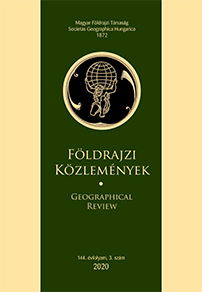Trade Policy of The Republic of Korea and the Koreu Free Trade Agreement
Abstract
The Republic of Korea (South Korea) is one of the typical newly industrialised economies of Asia (ANIEs), which has undergone a spectacular economic and social development for the recent half century. Since the 1960’s it has gradually developed and become one of the most advanced nations of the world.
As a result of the stalemate of Doha-round, and of the financial and economic crisis in 2008-2009, a new trend seems to emerge in the field of trade liberalization in the world: instead of striving for a comprehensive, multilateral framework, a growing number of “new generation” free trade agreements have been emerging that are concluded on bilateral level or among a few countries.
The Republic of Korea joined this trend in 2008. Since then it has concluded a number of FTAs with Asian, American, European and other partners including the USA and the European Union, and it still has a number of draft agreements under negotiation. The EU-Korea FTA (KOREU) entered into force on 1 July 2011, marking a new era in the EU-Korea trade relations. It is the most comprehensive free trade agreement ever concluded by the EU, and the first with a partner country in Asia. Since it came into force, import duties have been eliminated on nearly all products (98.7 % of duties within five years), which resulted in a far-reaching trade liberalization in services as well. Since 2011 the European Union’s export to Korea has been growing, and the former trade deficit in the EU-Korea relations has shifted to European surplus in the balance of trade. This can be seen as an advantage for the EU, but it also reflects the vulnerability of the Korean economy’s competitiveness.
Copyright (c) 2020 György Neszmélyi

This work is licensed under a Creative Commons Attribution-NonCommercial-NoDerivatives 4.0 International License.



